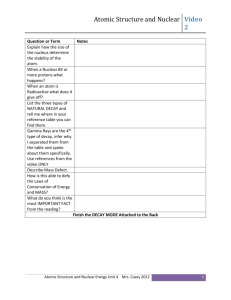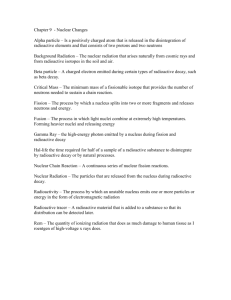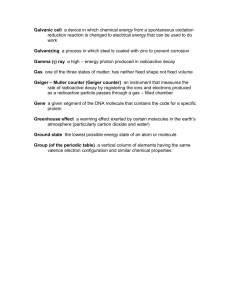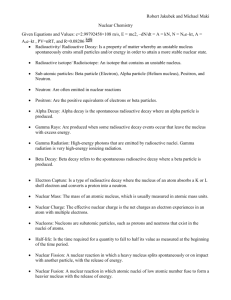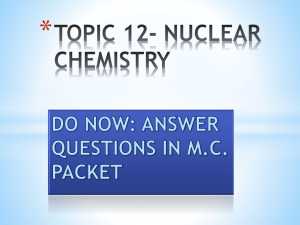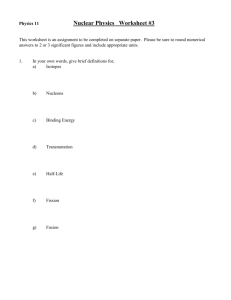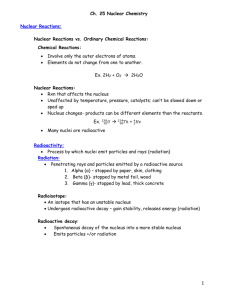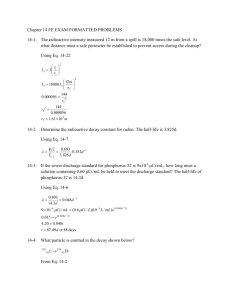nucleus fossil
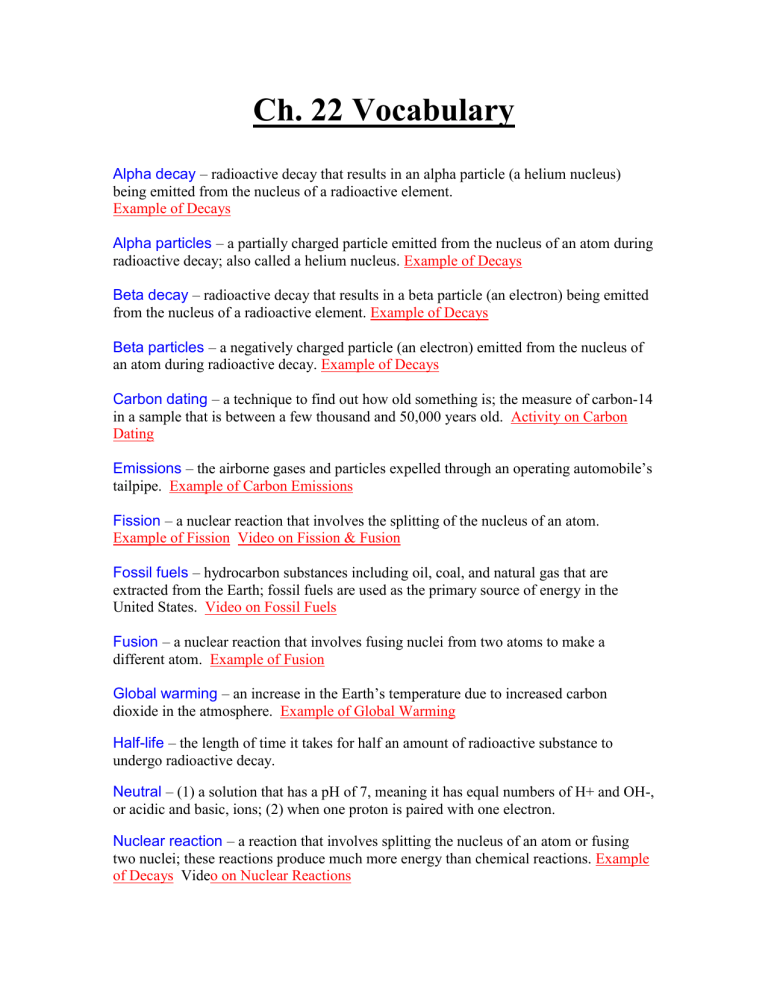
Ch. 22 Vocabulary
Alpha decay – radioactive decay that results in an alpha particle (a helium nucleus) being emitted from the nucleus of a radioactive element.
Example of Decays
Alpha particles – a partially charged particle emitted from the nucleus of an atom during radioactive decay; also called a helium nucleus. Example of Decays
Beta decay – radioactive decay that results in a beta particle (an electron) being emitted from the nucleus of a radioactive element. Example of Decays
Beta particles
– a negatively charged particle (an electron) emitted from the nucleus of an atom during radioactive decay. Example of Decays
Carbon dating – a technique to find out how old something is; the measure of carbon-14 in a sample that is between a few thousand and 50,000 years old. Activity on Carbon
Dating
Emissions – the airborne gases and particles expelled through an operating automobile’s tailpipe. Example of Carbon Emissions
Fission – a nuclear reaction that involves the splitting of the nucleus of an atom.
Example of Fission Video on Fission & Fusion
Fossil fuels – hydrocarbon substances including oil, coal, and natural gas that are extracted from the Earth; fossil fuels are used as the primary source of energy in the
United States. Video on Fossil Fuels
Fusion – a nuclear reaction that involves fusing nuclei from two atoms to make a different atom. Example of Fusion
Global warming – an increase in the Earth’s temperature due to increased carbon dioxide in the atmosphere. Example of Global Warming
Half-life – the length of time it takes for half an amount of radioactive substance to undergo radioactive decay.
Neutral – (1) a solution that has a pH of 7, meaning it has equal numbers of H+ and OH-, or acidic and basic, ions; (2) when one proton is paired with one electron.
Nuclear reaction – a reaction that involves splitting the nucleus of an atom or fusing two nuclei; these reactions produce much more energy than chemical reactions. Example of Decays Vide o on Nuclear Reactions
Nucleons – the protons and neutrons in the nucleus of an atom.
Photosynthesis – a chemical reaction performed by plants in which energy from the sun is converted to chemical energy; carbon dioxide is converted to sugar in this reaction.
Example of Photosynthesis
Radioactive – a term to describe an atomic state when the nucleus is emitting radiation in the form of particles and energy until it becomes more stable.
Radioactive isotope – an unstable isotope of an element that spontaneously undergoes radioactive decay.
Radiation – (1) the process of emitting radiant energy; (2) a term to describe the particles and energy that are emitted from radioactive substances.
Stable – (1) a term used to describe an atom that has a balance of charge; (2) a nonradioactive nucleus.
Video on Coal vs. Nuclear Power
